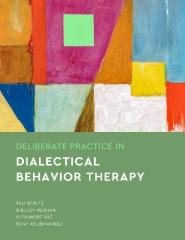amp ldquo Ideal for graduate students in the field of psychology studying theories of therapy and counseling as well as for seasoned counseling practitioners interested in better understanding this approach. amp rdquo -<i>Midwest Book Review</i><br /><br /> amp ldquo Craske presents a thorough history of CBT, from its origins as a science-based treatment of behaviors to its second- and third-wave iterations, which incorporate the role of cognition as content and the function of cognition in changing behavior. As in all the volumes of this series, the author presents the therapy process, applications to specific disorders, efficacy research, contraindicators, and cross-cultural limitations. Well-chosen case studies illustrate a variety of applications. amp rdquo -<i>Choice</i><br /><br /> amp quot Accessible, yet thoroughly competent, this short volume covers cognitive amp ndash behavioral therapy (CBT) in a way that will help all students, regardless of their orientation and background, understand how these methods can fit into their training as psychotherapists and behavior change agents. Covering all of the recent developments, this second edition is a gem of clear thinking, from one of the best thinkers in the CBT tradition. Highly recommended. amp quot -Steven C. Hayes, PhD, Foundation Professor of Psychology, University of Nevada, Reno<br /><br />
This essential primer to cognitive behavioral therapy, amply illustrated with case examples featuring diverse clients, is perfect for graduate students studying theories of therapy and counseling as well as for seasoned practitioners interested in better understanding this approach.
Cognitive amp ndash behavioral therapy (CBT) originated in the science and theory of classical and instrumental conditioning when cognitive principles were adopted following dissatisfaction with a strictly behavioral approach. CBT combines behavioral and cognitive interventions so that, on the behavioral level, practitioners can aim to decrease clients' maladaptive behaviors and increase adaptive ones, and, on the cognitive level, they can aim to modify clients' maladaptive thoughts, self-statements, or beliefs.
A large number of variations on the original theory have developed over the decades, but all types of CBT are unified by their empirical foundation, reliance on the theory and science of behavior and cognition, and the centrality of problem-focused goals. In this edition, the author provides vital updated coverage of the literature that explores the therapy process, primary change mechanisms, and empirical basis of the approach, as well as likely future developments.
How to Use This Book With APA Psychotherapy Videos
- Introduction
- History
- Theory
- The Therapy Process
- Evaluation
- Future Developments
- Summary
- Glossary of Key Terms
References
Index
About the Author
About the Series Editors























